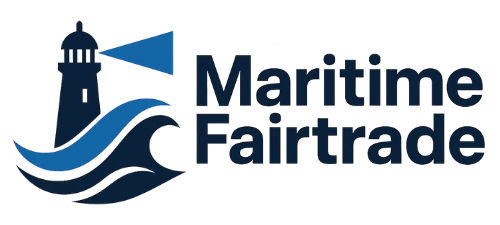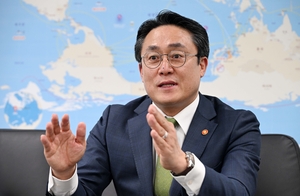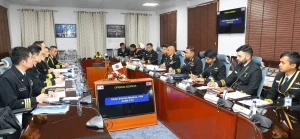In a significant move to address ocean challenges through digital innovation, South Korea’s Minister of Oceans and Fisheries, Kang Do-hyung, plans to introduce “Ocean Digital” at the upcoming Our Ocean Conference in April. As a nation with extensive maritime boundaries, South Korea is positioning itself as a global maritime leader, highlighted by its advanced shipping industry and significant cargo capabilities in ports like Busan and Incheon.
South Korea is set to host important maritime events, including the Our Ocean Conference and the APEC Oceans-related Ministerial Meeting, aimed at promoting its maritime achievements and future policies. Additionally, the country is vying to co-host the 2028 UN Ocean Conference alongside Chile, focusing on ocean sustainability amid escalating global challenges. Minister Kang expressed confidence in South Korea’s bid, emphasizing the nation’s unique geopolitical position and its substantial maritime trade, which constitutes 99.7% of its trade volume.
Hosting the UN Ocean Conference in 2028 is expected to enhance South Korea’s global standing, allowing it to spearhead international collaboration on crucial ocean issues such as marine plastic pollution and biodiversity. The anticipated participation of over 10,000 delegates, including heads of state, signifies the event’s importance in reinforcing South Korea’s maritime leadership.
The Our Ocean Conference serves as a platform for over 100 nations to discuss pressing ocean issues. South Korea’s theme, “Our Ocean, Our Action,” emphasizes the urgency for sustainable solutions. The upcoming conference includes proposals like Ocean Digital to harness digital technologies for ocean challenges, alongside various side events designed to engage diverse stakeholders.
Minister Kang also addressed potential uncertainties arising from changes in the U.S. administration and its impact on maritime logistics. He acknowledged that while there may be short-term disruptions, the ministry is focused on enhancing support for shipping firms and establishing a robust logistics framework to mitigate risks. In tandem, South Korea is preparing for possible shifts in shipping regulations related to decarbonization.
To solidify its role in the maritime sector, South Korea is prioritizing initiatives for carbon neutrality and expanding support to climate-vulnerable coastal and island nations. This includes a commitment to increase its official development assistance to Pacific Island countries significantly.
Additionally, the country is witnessing growth in its seafood exports, particularly in seaweed products. Driven by efforts to enhance production and certification, the government aims to continue the trend of rising export values in seafood, which reached $990 million in 2024.
In summary, South Korea’s strategic focus on digital solutions in marine management, its hosting of pivotal conferences, and commitment to sustainable practices positions the nation as a formidable player in the global maritime arena, while also promising economic and environmental benefits.
Source link










